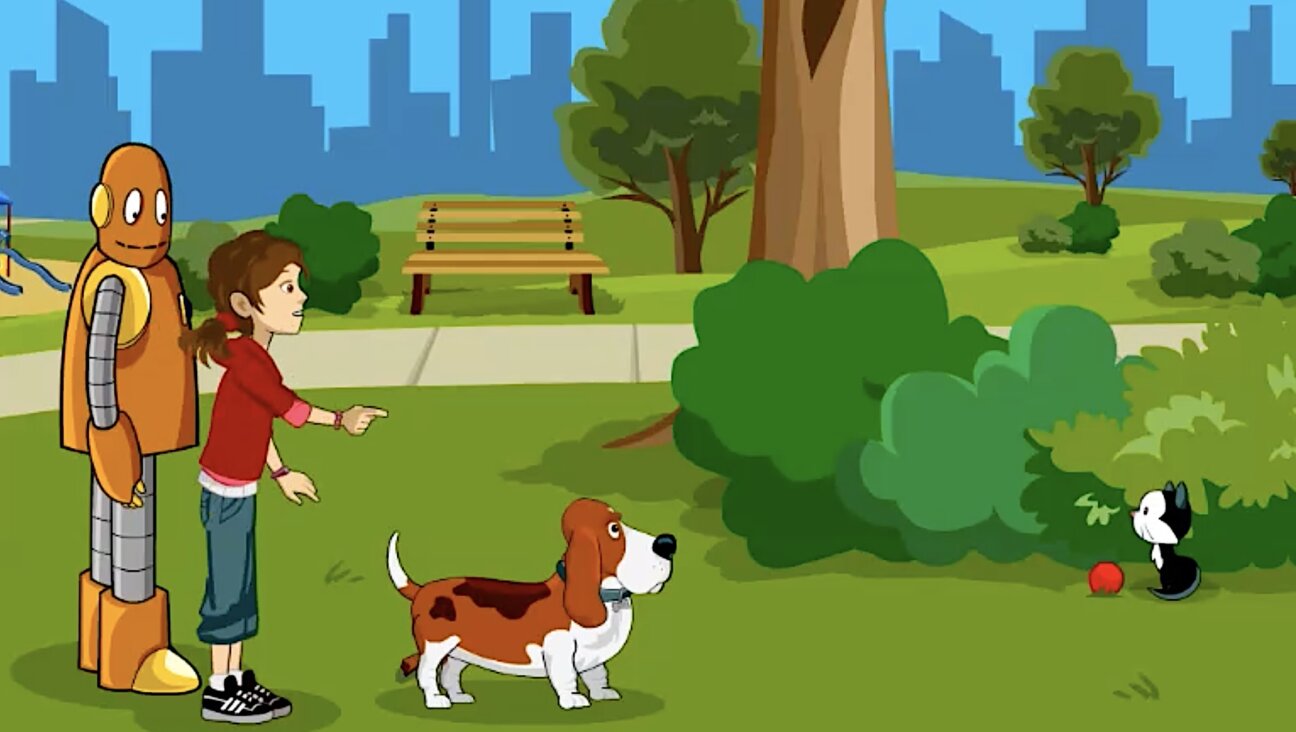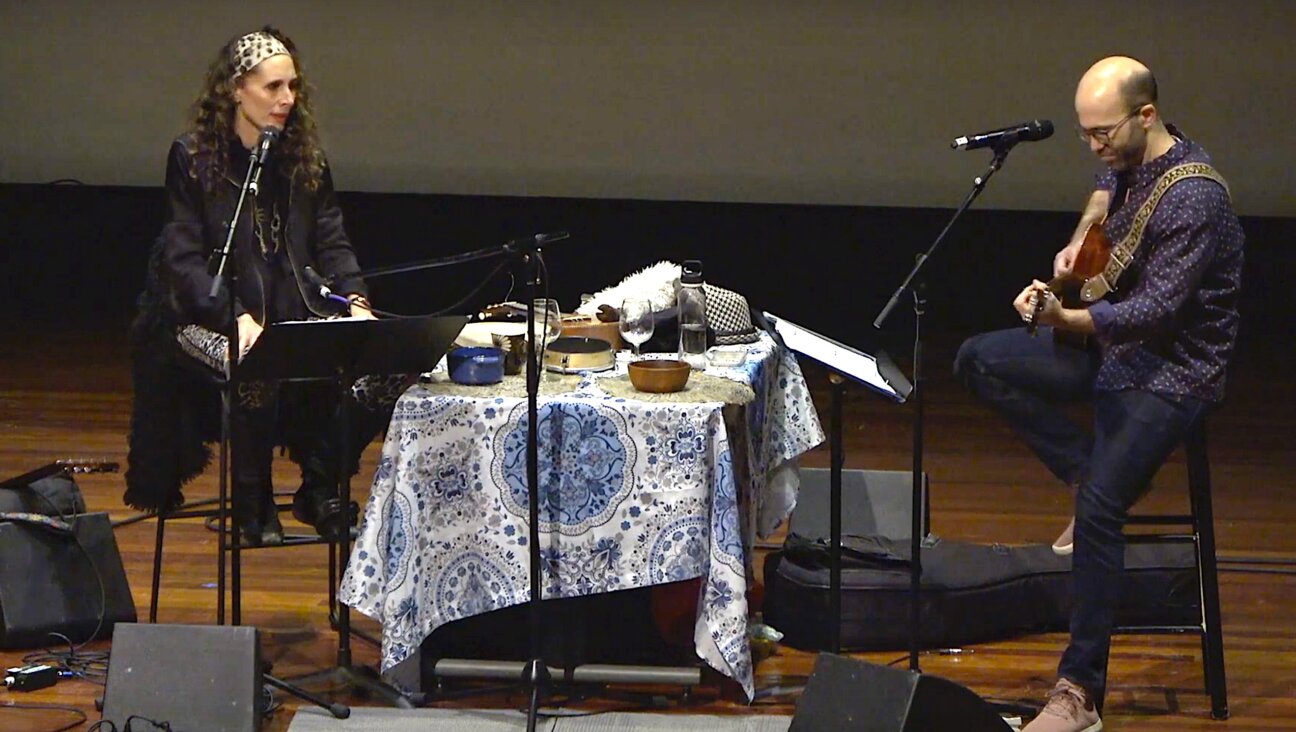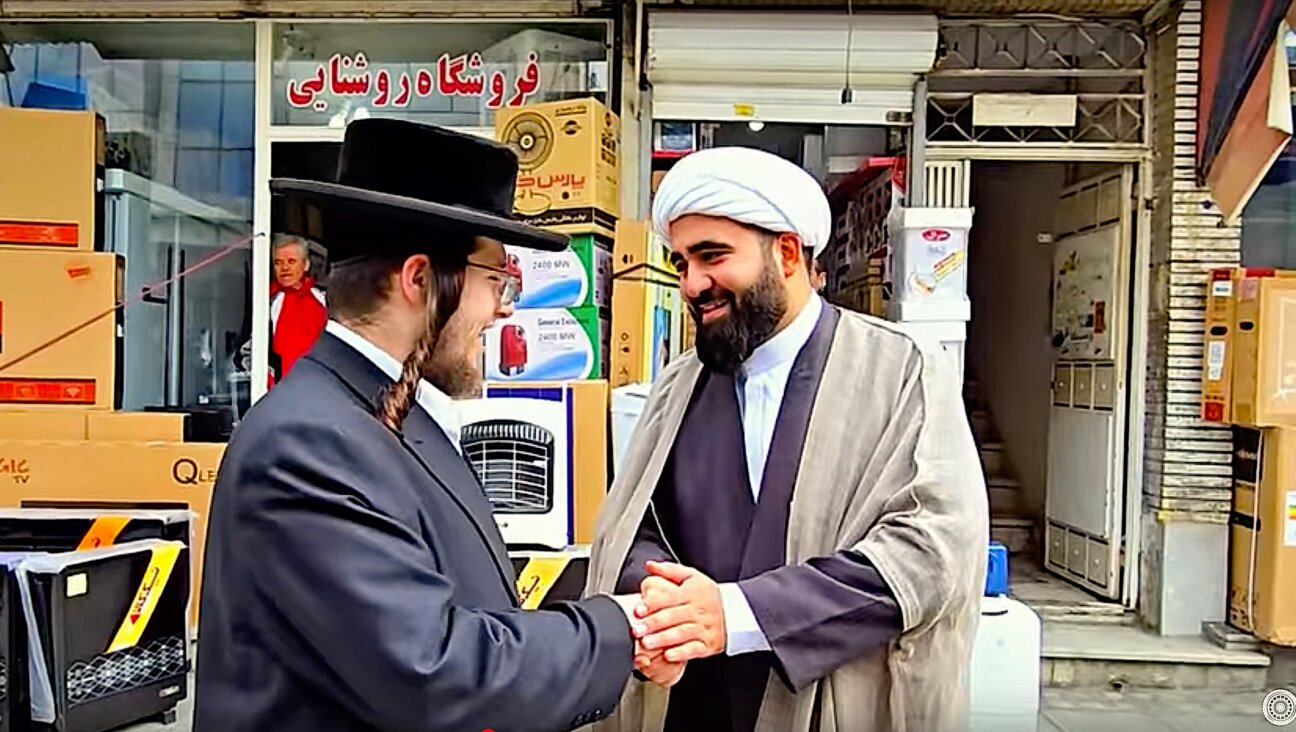My father, the shoemaker

Graphic by Angelie Zaslavsky
Read this article in Yiddish
My father, Ben Perkal (Berche, in Yiddish) was a kind person and a devoted family man, but he may have been the worst shoemaker in Poland.
OK, that may be a slight exaggeration. But he was surely the worst shoemaker in Ostralenka, the shtetl in northeastern Poland that he grew up in. How do I know, you ask? Both my mother and my father’s nephew – my cousin, Henry – attested to that. Henry claims that the boots my father made and sold to the non-Jewish peasants fell apart so quickly my father was afraid that one of them might come over and beat him up.
My father didn’t make the entire boot. His job was to place the soles on it. He would use the filmiest leather he could find and then attach the sole to the shaft of the boot, using wooden pegs. He would then smooth out the wooden pegs so that a person’s foot would not become impaled by the pegs. Needless to say, his method wouldn’t be recommended by any professional shoemaker. In any case, every Monday and Thursday, my parents and Henry would shlep the boots on a large hanger to the open market. My father would then haggle with the peasants over the price. It was a miracle that my father wasn’t seriously injured by any of them, since after any heavy rain, the boots could fall apart.
To be fair, my father wasn’t the only bad shoemaker in Poland. There is a history of shoddy shoemakers going back to the Middle Ages, as we can surmise from a ruling issued by the Polish shoemakers’ guild, founded in 1502 which stipulated that poor workmanship was to be dealt with by the guild. If the guild did not act, the duke overseeing the guild could fine the offending shoemaker. I guess that system fell apart, at least by the time my father became a shoemaker in Ostralenka, in the early 1930s.

My father, Ben Perkal (Bercha in Yiddish) and me, in 1948
A popular joke in the town went like this: “When Pepka the Shoemaker sewed shoes, he also used material like paperboard. When they asked him why the shoes tore so quickly, he would answer: ‘Because they don’t polish them enough.’ But when after a vigorous polishing, they tore even more, he would say: ‘That’s because they polished them too much.’
It may not sound very funny now, but in Ostralenka it was hilarious.
My father was known in the town not only for his lack of shoemaker skills. There was the time that he decided to take a joy ride with a horse and wagon that was left unattended. He soon realized that he had no idea how to control a horse. The horse and wagon created havoc in the local marketplace, knocking down stalls, as people jumped out of the way, with my father hanging on for dear life. Finally a peasant jumped on the wagon and was able to stop it. It’s not known if the peasant was wearing boots that my father made.
My father was also once arrested for being a Communist agitator at the annual May Day parade. My theory is that my father was set up by some very angry peasants. (And yes, there was indeed a yearly May Day parade in Ostralenka, but maybe not, if it fell on a shabbos.)
When the Germans invaded Ostralenka, the vast majority of Jews were murdered. My parents, sister, brother, grandmother, aunt and uncle all managed to escape. But then, as they were fleeing, my father suddenly realized he had left his shoemakers’ tools behind. To the dismay of my mother, he went back to Ostralenka to retrieve them and as soon as he entered the town, he was stopped by a German soldier.
My father gave him a sob story that he had two small children (that part was true), that they were very ill and he had to come back to get their medicine (that was not). As luck would have it, my father encountered the one soldier that actually fell for the story. He let my father go and that’s how he retrieved his tools. When my father finally reunited with the family, my mother was fit to be tied.
The crazy thing is that my father shlepped these useless shoemaker’s tools all the way to America. As you can see from the picture, I still have one of them.

One of the shoe-making tools that my father shlepped all the way to America Image by Harry Perkal
And yet, despite it all, it was precisely this kind of determination and courage that enabled my father, and our entire family, to survive the war in Russia. A seemingly ordinary man, even a bit of a shlemazel, can still, when time demands it, be capable of rising to the occasion.























